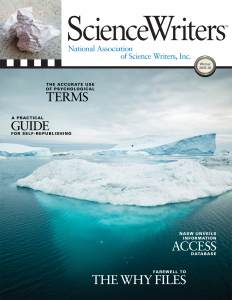By Ted Scheinman
Here are some words and phrases you have probably been misusing: comprise, fulsome, foundering, begging the question.
Here are some others: comorbidity, latent construct, hierarchical stepwise regression, principal components factor analysis.
That second list comes from a review titled “Fifty Psychological and Psychiatric Terms to Avoid: a List of Inaccurate, Misleading, Misused, Ambiguous, and Logically Confused Words and Phrases”, which was published in Frontiers in Psychology by researchers from Emory University, Sacred Heart College, Georgia State University, and SUNY–Binghamton.
It’s a rich and technical list: The authors have marshaled a thorough lexical critique, buttressed by persuasive demonstrations of clinical imprecision, plus damning statistics about the number of peer-reviewed papers that include phrases the authors find dubious or meaningless, such as “statistically reliable” (62,000 manuscripts) or “reliable and valid” (more than 190,000 manuscripts). The article is an aggressive corrective against the loose use of language in psychology and related fields. The researchers even cite an epitaph from the Confucian analects: “If names be not correct, language is not in accordance with the truth of things.”This list is also potentially troubling for science journalists, many of whom are circulating the Frontiers piece. Some seem grateful for the corrective, others a little paranoid about it. (What if you misused “empiricism” in that feature last fall?!) Some of the caveats are of immediate use: The authors, for example, make a strong case that “genetically determined” is a misleading phrase that we should expunge and replace with “genetically influenced.”
It’s worth emphasizing that the semantics here aren’t merely cosmetic. “A gene for x” and “the autism epidemic,” for example, are sensationalist, oversimplified, and fundamentally incorrect characterizations. It’s fun to believe there might be a gene for liking the Stooges, but single-gene disorders rarely affect that sort of phenotypic response; the “autism epidemic,” meanwhile, became a fixture in publichealth discourse only because the rate of diagnosis rose sharply as doctors learned to recognize the condition. (Also: The Frontiers article doesn’t say so, but “epidemic” generally carries overtones of communicability. No one can “catch” autism.)
Other useful caveats: Oxytocin is NOT the “love molecule” (though apparently you can take oxytocin intranasally); and “statistically reliable” means nothing (“the statistical significance of a result should therefore not be confused with its likelihood of replication”).
Examples of inaccurate, misleading, misused, ambiguous, and logically confused words and phrases
Inaccurate or misleading terms
- A gene for
- Autism epidemic
- Brain region X lights up
- Brainwashing
- Chemical imbalance
- Genetically determined
- God spot
- Gold standard
- Hard-wired
- Hypnotic trance
- Lie detector test
- Love molecule
- Multiple personality disorder
- Steep learning curve
- Truth serum
Frequently misused terms
- Acting Out
- Closure
- Denial
- Fetish
Ambiguous terms
- Comorbidity
- Interaction
- Medical model
- Oxymorons
Mind-body therapies
- Personality type
- Scientific proof
Pleonasms
- Empirical data
- Mental telepathy
Ted Scheinman is senior editor of Pacific Standard magazine.
“What’s the Right Way to Talk About Psychology?” Pacific Standard, Aug. 5, 2015.
(NASW members can read the rest of the Winter 2015-16 ScienceWriters by logging into the members area.) Free sample issue. How to join NASW.




